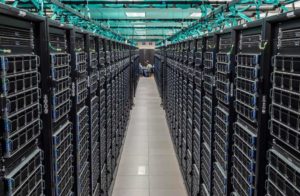In this video from the Stanford HPC Conference, Dan Stanzione from the Texas Advanced Computing Center describes how their powerful supercomputers are helping to fight the coronavirus pandemic.
In times of global need like this, it’s important not only that we bring all of our resources to bear, but that we do so in the most innovative ways possible,” said TACC Executive Director Dan Stanzione. “We’ve pivoted many of our resources towards crucial research in the fight against COVID-19, but supporting the new AI methodologies in this project gives us the chance to use those resources even more effectively.”
According to Stanzione, TACC continues to serve the scientific community in a host research areas. In fact, TACC recently announced that the National Science Foundation has approved allocations of supercomputing time on Frontera to 49 science projects for 2020-2021. Time on TACC’s Frontera supercomputer is awarded based on a project’s need for very large scale computing to make science and engineering discoveries, and the ability to efficiently use a supercomputer on the scale of Frontera.

Frontera is the fifth most powerful supercomputer in the world and the fastest academic supercomputer, according to the November 2019 rankings of the Top500 organization.
The projects selected range from efforts to model the global climate to simulating tornadoes over the lifetime of a storm to designing vehicles for hypersonic flight. The projects are led by researchers at 34 universities across 16 states and began April 1, 2020.
Frontera is a National Science Foundation (NSF)-funded leadership-class computer system designed to be used by the most experienced academic computational scientists in the nation. In 2018, NSF awarded TACC a $60 million grant to design and build the system, and another $60 million to operate the system for five years. Frontera was deployed in September 2019 and since last fall, teams of early users — selected by NSF or granted discretionary access to the system — have successfully used Frontera for science.





